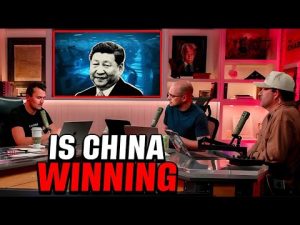In an age where the cultural landscape seems more focused on identities than realities, the recent transformation of pop culture icon Jojo Siwa from lesbian to ‘queer’ raises eyebrows and questions about the seriousness of societal conversations. While many might argue that personal identity is fluid and worthy of exploration, one cannot help but wonder if such transitions are a reflection of genuine self-discovery or simply the latest trend in a seemingly endless cascade of identity labels.
Jojo Siwa, formerly celebrated as a Nickelodeon star, has now redefined her sexual identity, stating that she identifies with the label ‘queer.’ In her words, she feels a deeper connection to non-binary individuals, which, to the average observer, raises more questions than it answers. How does one “feel” like a non-binary person? The implications of such a statement could lead to absurd hypothetical scenarios where identity shifts are dictated by the mood of the day, much like deciding between cereal or toast for breakfast.
This cultural moment isn’t just about Siwa; it reflects a broader trend where every individual seeks to define themselves based on ultra-specific categories. With so much shifting terminology, it begs the question—do these labels serve clarity or chaos? One could argue that the plethora of terms diminishes the significance of genuine struggles faced by LGBTQ+ individuals throughout history. After all, transitioning from one identity label to another can be perceived as trivializing the very real issues that accompany a true understanding of sexual orientation.
Moreover, the entertainment industry seems wrapped up in sensationalism rather than substance. Take Pedro Pascal, for instance, who has made headlines not only for his acting but for his staunch advocacy of transgender rights. Recently, he sported a shirt promoting transgender rights at a public event, all while the world grapples with complex issues like the definition of gender, often complicated even further by legal rulings, such as those made by the UK Supreme Court confirming that men and women are, in fact, distinct.
Meanwhile, in the political arena, individuals like Michelle Obama and Pete Buttigieg provide stark contrasts to the current cultural chaos. Michelle Obama’s continual portrayals of anger in her public appearances might resonate with some, but it’s not likely to charm the general electorate. On the other hand, Buttigieg’s attempts to navigate sensitive topics surrounding adoption fees and race reveal a disconnect from the practicalities many Americans face. His recent pronouncements about racial disparities in adoption fees resonate with complex historical contexts; yet, coupling such discussions with the commercialization of adoption might leave many feeling unsettled.
In summary, while the exploration of personal identity is an important dynamic, it must not overshadow genuine societal issues or turn into a spectacle. The juxtaposition of cultural figures with their fluid identities against profound matters like racial equity and gender distinctions sometimes makes the West appear lacking in seriousness. It’s time to shift the dialogue back to the weightier issues at hand, ensuring that identity exploration is grounded in reality, not merely a passing trend. After all, if the pursuit of understanding oneself means getting lost in a sea of labels, are we really gaining clarity, or are we just having a laugh at the absurdity of it all?







